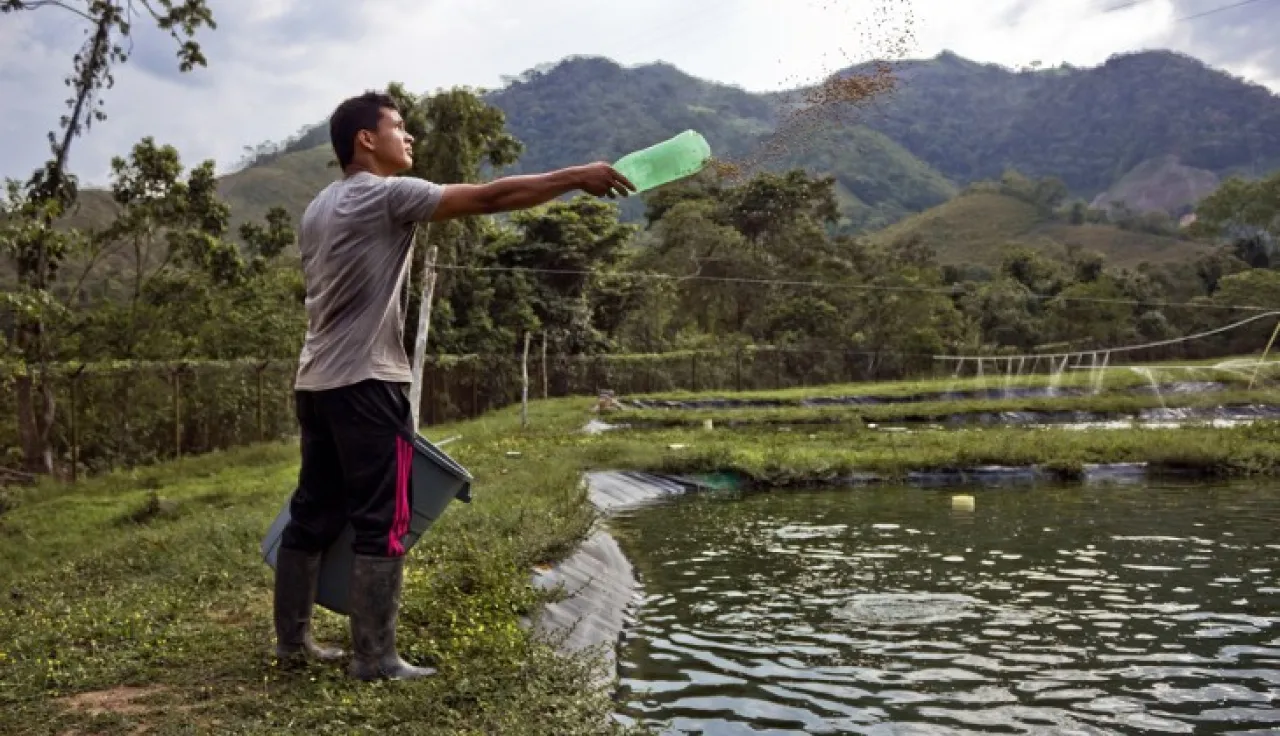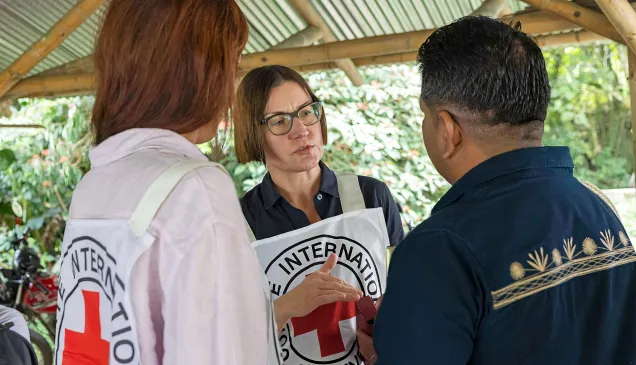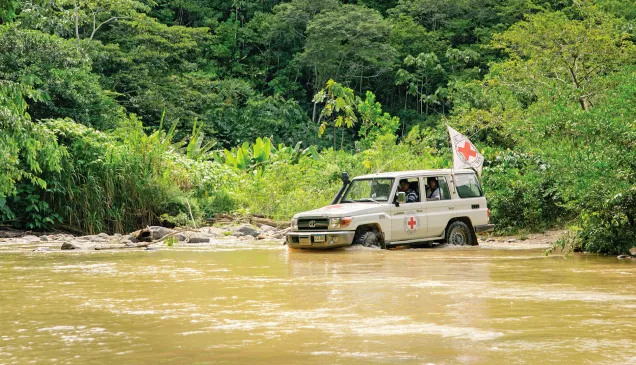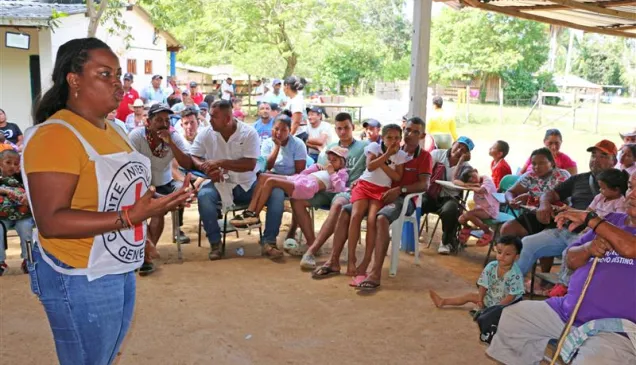Finding ways to survive: Stories from Colombia

"What I am going to do without any money or anything else"
Not only was Wilson injured and unable to afford the trip to hospital, no longer able to work, he also lost the means of providing for his family.
"I am 24 and was a truck driver in Catatumbo, Norte de Santander. One day, I was driving to another village and there was a car bomb in the middle of the road. I stopped and then when I started the vehicle again, the bomb exploded. I was injured in the stomach and had to have a colostomy.
"A friend of mine came to my aid. He took me to hospital and they gave me some pain killers. Then I was moved to Ocaña. There, the doctor put his finger in my stomach and I went into a coma. When I woke up, I was in intensive care. My brother said: 'What I am going to do without any money or anything else'. He had no money for my transport or for my medical expenses. He went to the Red Cross, and they helped with everything.
"If I don't work, I don't eat. I have two little girls and my wife and I provide for them working with my truck, but my truck has been damaged. I applied to the government for assistance, but six months have passed and I haven't received anything. I have had various doctor's appointments. I have to go to Ocaña for an operation. They hadn't been able to operate so far, because the wound hadn't healed, but I am going to have the operation soon now.
"Those with weapons know why they are fighting, but me, all I am used to is working all the time; everybody knows that."
Why would they want to hurt me like this? I wasn't doing anything wrong.
Colombia: Life-changing potatoes
Fanny and her children fled the violence in their region of Colombia, only to land up in a dangerous, run-down part of Medellín. The ICRC helped them start a mobile potato-selling business. Today, Fanny and her sons are independent, they're earning enough to live on and they can dare to hope again.
Colombia : My beautiful hairdresser's
Roger comes from a part of Medellín plagued by gang warfare. If tyou come from there, no employer will touch you. But Roger was determined to get ahead. Thanks to the ICRC, he was able to open a small hairdressing salon. Today, he has high hopes of being able to support his family.
The ICRC's response
A comprehensive solution to restore livelihoods
In order to mitigate the vulnerability of people living in the midst of violence and to help restore their basic rights, the ICRC carried out activities in the areas of health, economic security and water and sanitation.
Access to health care
-
3,000 sick or injured people received medical attention, thanks to guidance and financial support provided by the ICRC, in coordination with the State (see p. 20).
-
2,400 people – including doctors, nurses and people from the community – received training on how to treat sick and injured people.
-
12,000 people received care at four physical rehabilitation centres which receive support from the ICRC in the form of training, materials to make orthopaedic devices and technical assistance. Around 400 disabled people also received direct assistance from the ICRC for physical rehabilitation.
-
In order to help protect health care personnel, buildings and vehicles, 150 facilities were marked with the emblem indicating medical services. In addition, 3,000 people received self-defence training.
Economic security
- 19,000 people living in areas affected by violence were able to earn some income and recover their livelihoods thanks to 32 income-generating initiatives, such as crop growing, fish farming, poultry and livestock farming, sugar mills, rice mills and a bakery using ingredients produced from traditional indigenous crops
-
A further 1,400 people received support to recover their economic independence and cope with the effects of the violence. For example, a group of indigenous women is producing and selling their community's typical garments, and a community shop was strengthened after it was left without stocks during the fighting.
-
6,300 people living in villages affected by the violence are now better prepared and better organized to cope with situations such as armed attacks, displacement and confinement, thanks to community workshops held by the ICRC.
Water and basic sanitation
- Living conditions improved for around 18,000 people, thanks to initiatives to increase access to water and basic sanitation and infrastructure.
- These initiatives included the construction and improvement of small aqueducts, water harvesting and storage systems, school canteens and hostels and a bridge, which helped to prevent accidents caused by explosive devices and remnants of war. They also make it possible for people from these communities to avoid going near combat zones



